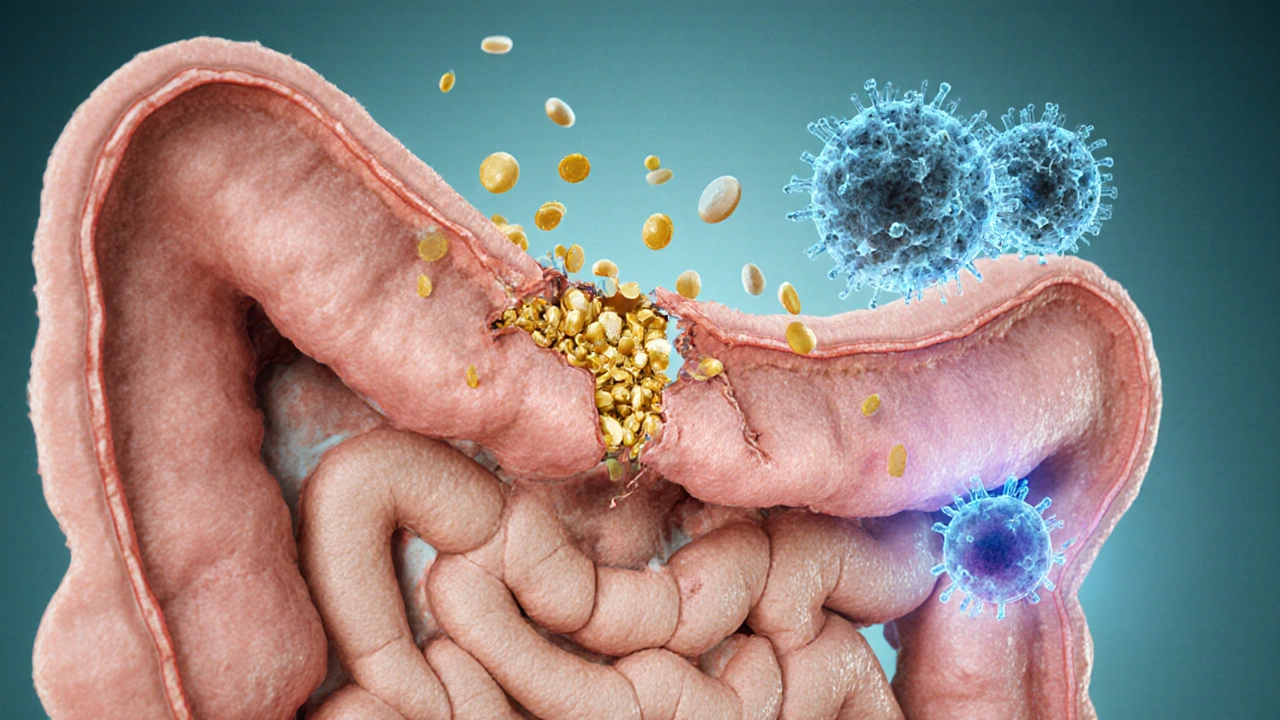Celiac Disease – What You Need to Know
When dealing with Celiac Disease, an autoimmune reaction to gluten that damages the small intestine. Also known as celiac sprue, it triggers a range of digestive and non‑digestive issues. Gluten, the protein in wheat, barley and rye, is the trigger that sets off this chain reaction. In simple terms, eating gluten leads your immune system to attack the gut lining, which in turn prevents nutrients from being absorbed properly. This chain – gluten → immune response → gut damage – is the core of how celiac disease develops, and understanding it helps you spot symptoms early.
Key Facts About Celiac Disease
Autoimmune disorder, a condition where the body’s defense system attacks its own tissues is the broader category that celiac disease falls under. Because it’s an autoimmune disorder, it often coexists with other immune‑related issues like type 1 diabetes or thyroid disease. Managing it requires more than just avoiding gluten; you also need to monitor for associated deficiencies such as iron, calcium, and vitamin D. Here’s where the gluten‑free diet, a nutritional plan that eliminates all sources of gluten becomes the main treatment. It isn’t just a fad – it’s the only proven way to halt gut damage and let the intestine heal. Most people notice symptom relief within weeks, but long‑term adherence is essential to prevent complications like osteoporosis or anemia.
Beyond diet, proper diagnosis is a crucial step. Blood tests checking for antibodies such as tTG‑IgA give an initial clue, and an endoscopic biopsy confirms the damage. After diagnosis, regular follow‑ups track recovery and catch any lingering nutritional deficiencies, gaps in essential vitamins and minerals caused by poor absorption. Lifestyle adjustments, like reading food labels and avoiding cross‑contamination at home, become part of daily life. If you’re new to this, start by swapping out obvious gluten sources – bread, pasta, cereals – for certified gluten‑free alternatives, and experiment with naturally gluten‑free grains like rice, quinoa and buckwheat. The articles below dive deeper into each of these aspects, from spotting hidden gluten in processed foods to handling social situations, giving you a practical roadmap for living well with celiac disease.

How Poor Food Absorption Triggers Autoimmune Disorders
Explore how poor nutrient absorption can trigger autoimmune disorders, learn the key mechanisms, symptoms, testing and gut‑healing strategies.





